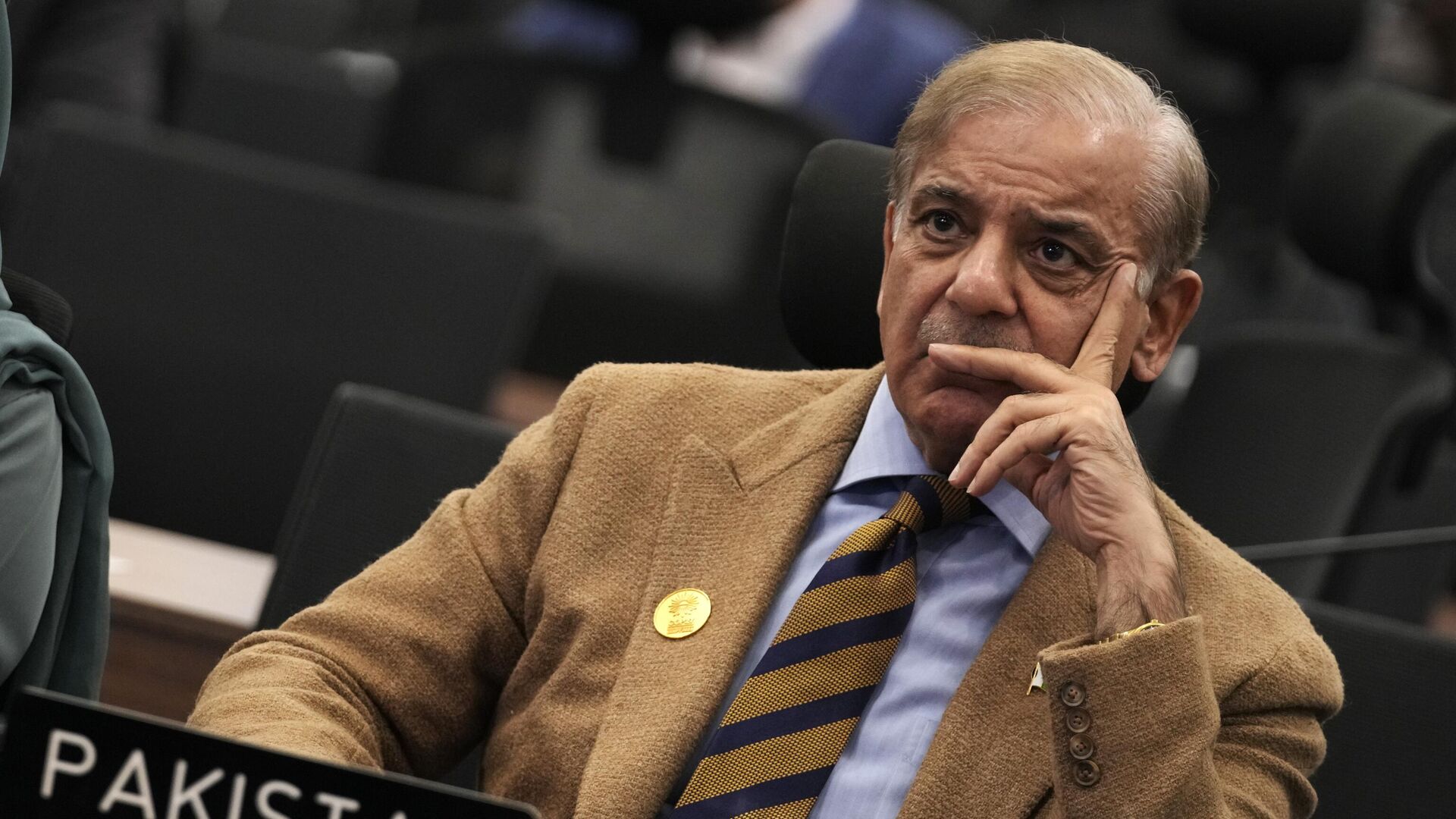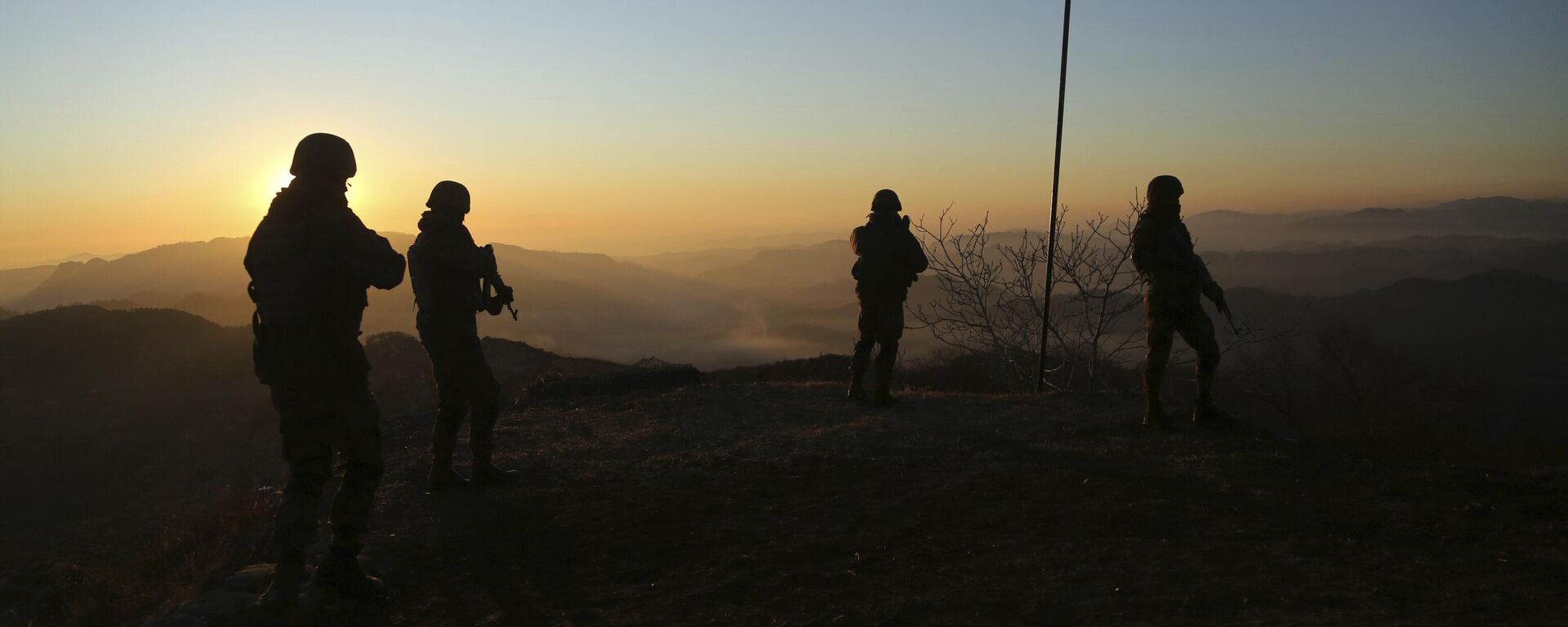https://sputniknews.in/20250407/pakistans-central-asian-dream-whats-standing-in-the-way-of-its-ambitions-8958429.html
Pakistan's Central Asian Dream: What’s Standing in the Way of Its Ambitions?
Pakistan's Central Asian Dream: What’s Standing in the Way of Its Ambitions?
Sputnik India
Pakistan has been trying to tap into the Central Asian market for decades, but faces numerous challenges.
2025-04-07T20:39+0530
2025-04-07T20:39+0530
2025-04-08T11:32+0530
sputnik opinion
pakistan
india
afghanistan
international monetary fund (imf)
tehreek-e-taliban pakistan (ttp)
balochistan
baloch liberation army (bla)
baloch people
khyber pakhtunkhwa
https://cdn1.img.sputniknews.in/img/07e7/01/04/386195_0:0:3072:1728_1920x0_80_0_0_f90fbb8c8b1d940fb4898c8261a31f42.jpg
The potential connection between Pakistan and Central Asian markets continues to appear promising, but successful implementation remains difficult to achieve, experts have said.The increasing count of militant strikes against Pakistan, particularly close to the Afghan border, generates substantial security issues that discourage both prospective investors and regional cooperation partners, Wania Jahangir Khan, an international relations commentator and managing editor of Global Defense Insight, a Pakistani geopolitical publication, believes.Furthermore, trade passage through the unstable territories of Afghanistan continues to be a dangerous operation with unpredictable outcomes, she added.Central Asian states were former communist states, and it took them a long time to open up and become market economies, stressed Brigadier (Retd) Tughral Yamin.Nonetheless, the biggest hurdle in Pakistan's Central Asian dream has been an unstable and often hostile Afghanistan that has intervened in Pakistan's connection with Central Asian countries and the completion of such ambitious projects like the Turkmenistan-Afghanistan-Pakistan-India (TAPI) pipeline project, the Pakistan Army veteran underlined.The primary reason on the list of issues is security. With the Tehreek-e-Taliban Pakistan (TTP*), Islamic State Khorasan Province (ISKP*), and the Balochistan Liberation Army (BLA* attacking Pakistan's security forces at will, it will keep any investor from bringing business to the country, Syed Khalid Muhammad, founder and executive director of CommandEleven, a foreign policy and national security think tank based in Islamabad, pointed out.
https://sputniknews.in/20250403/whats-brewing-at-india-pakistan-border-8937462.html
pakistan
india
afghanistan
balochistan
khyber pakhtunkhwa
central asian republics (cars)
central asia
Sputnik India
feedback.hindi@sputniknews.com
+74956456601
MIA „Rossiya Segodnya“
2025
Pawan Atri
https://cdn1.img.sputniknews.in/img/07e6/0c/13/139630_147:0:831:684_100x100_80_0_0_8fa2b25903e7787fe6a2698552c167df.png
Pawan Atri
https://cdn1.img.sputniknews.in/img/07e6/0c/13/139630_147:0:831:684_100x100_80_0_0_8fa2b25903e7787fe6a2698552c167df.png
News
en_IN
Sputnik India
feedback.hindi@sputniknews.com
+74956456601
MIA „Rossiya Segodnya“
Sputnik India
feedback.hindi@sputniknews.com
+74956456601
MIA „Rossiya Segodnya“
Pawan Atri
https://cdn1.img.sputniknews.in/img/07e6/0c/13/139630_147:0:831:684_100x100_80_0_0_8fa2b25903e7787fe6a2698552c167df.png
paksitan, central asia
Pakistan's Central Asian Dream: What’s Standing in the Way of Its Ambitions?
20:39 07.04.2025 (Updated: 11:32 08.04.2025) Pakistan has been trying to tap into the Central Asian market for decades, but faces numerous challenges.
The potential connection between Pakistan and Central Asian markets continues to appear promising, but successful implementation remains difficult to achieve, experts have said.
The increasing count of militant strikes against Pakistan, particularly close to the Afghan border, generates substantial security issues that discourage both prospective investors and regional cooperation partners, Wania Jahangir Khan, an international relations commentator and managing editor of Global Defense Insight, a Pakistani geopolitical publication, believes.
Furthermore, trade passage through the unstable territories of Afghanistan continues to be a dangerous operation
with unpredictable outcomes, she added.
"Also, the diplomatic and economic relationships between Pakistan and its Central Asian neighbors remain weak, which leads other regional powers (for instance, India) to surpass Pakistan in this field. Moreover, to reduce dependence on the International Monetary Fund (IMF) and similar lenders, Islamabad must establish domestic security while improving regional associations and building enduring policies," Khan told Sputnik India.
Central Asian states were former communist states, and it took them a long time to open up and become market economies, stressed Brigadier (Retd) Tughral Yamin.
Nonetheless, the biggest hurdle in Pakistan's Central Asian dream has been an unstable and often hostile Afghanistan that has intervened in Pakistan's connection with Central Asian countries and the completion of such ambitious projects like the Turkmenistan-Afghanistan-Pakistan-India (TAPI) pipeline project, the Pakistan Army veteran underlined.
The primary reason on the list of issues is security. With the Tehreek-e-Taliban Pakistan (TTP*), Islamic State Khorasan Province (ISKP*), and the Balochistan Liberation Army (BLA* attacking Pakistan's security forces at will, it will keep any investor from bringing business to the country, Syed Khalid Muhammad, founder and executive director of CommandEleven, a foreign policy and national security think tank based in Islamabad, pointed out.
"Numerous old friends of Pakistan have promised to invest in the nation's natural resources, and several institutions have been created to attract investment. However, when investors ask the basic question about security, there is a lack of an answer," the think tanker highlighted.



